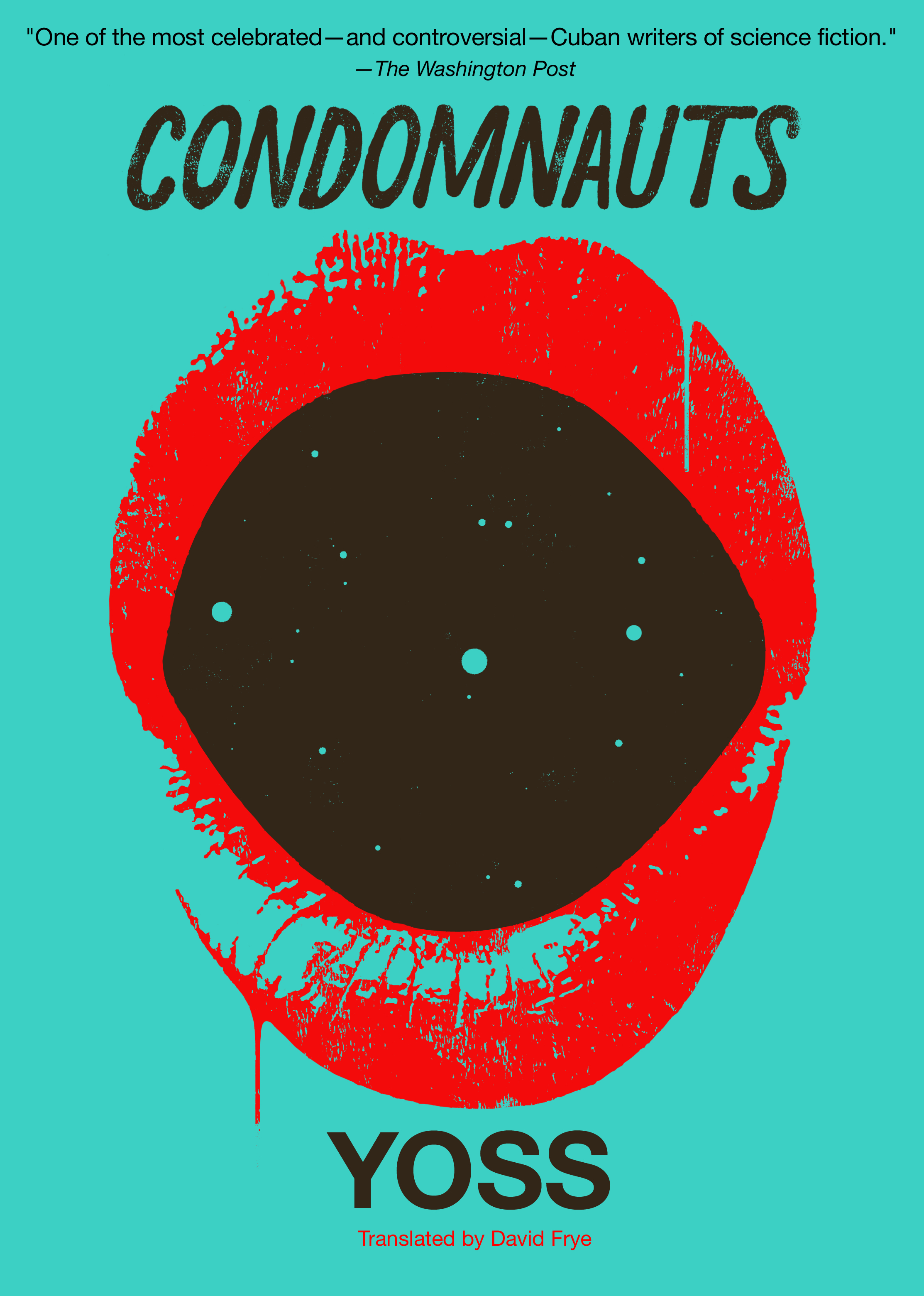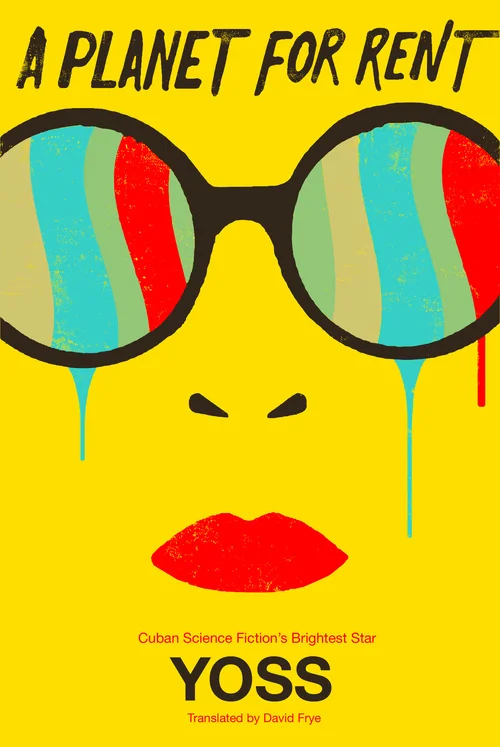Paul Semel talks with Yoss, “Cuba's premiere science-fiction writer” (VICE), about his latest novel, Condomnauts, a raucous space opera where humans explore the limits of the Milky Way—and their libidos.
This interview was originally published in paulsemel.com, and has been translated from the Spanish by Lily Seibert.
Paul Semel (PS): I always like to begin with a summary of the plot. So, what is Condomnauts about?
Yoss: In a few words and without spoiling anything, I could tell you about the life and adventures of Josué Valdes, a young, multiracial man from Cuban who works as a specialist in a Catalan space enclave of Nu Barsa. But this would be like trying to describe a dog by simply saying that it’s a mammal, quadruped, and carnivore, without talking about how he descends from a wolf, where his allegiances lie, and his many races.
The core premise of Condomnauts is that it develops in the 24th century, a future in which humankind has come into contact with hundreds of alien races who all must follow what’s called the Contact Protocol: when two ships with different species come together, in order to demonstrate peaceful intentions and the desire to conduct business together, a representative from each much have sex with the other.
Among humans, this circumstance has produced the emergence of a new profession: the condomnaut, or contact specialist. Becoming one involves more than simply intention: they require cold blood, the capacity to improvise, and a very strong stomach. They are well-paid professionals who train in specialized schools. Children who possess a certain disposition and aptitude for sexual experimentation train there, and what was once (and still is) considered a terrible and prohibited passion—sexual relationships between species—is now a well-respected talent.
PS: Where did you get the idea for Condomnauts, and how different is the finished novel from that original idea?
Yoss: I suppose that authors frequently don’t remember how their ideas come to them, or else they make them up. But, at least in this case, I remember very clearly how it all started. The idea emerged in November of 2008, during a fascinating conversation with two Venezuelan friends, Susana Sussmann and Roger Ávila, both authors of sci-fi and fantasy. We were talking about the distinct ways in which different cultures refer to those who explore space: astronauts to westerners, cosmonauts to the soviets, taikonauts to the chinese, and the word condomnauts occurred to me. Roger and Susana found it very funny and I resolved to write a book that centered around this concept. I thought a little bit and it immediately became clear that it would have to do with sexuality—very profound, no?—and over the next few months I sketched it out. I added some healthy irony about the Catalans, as I’ve spent 17 years sending short stories to compete in their UPC award without getting more than a mention in 2003—but seeing as texts that, in my opinion, had less imagination and literary merit won the competition and the 6000 euros, I simply enhanced their national spirit and their desire to declare independence from Spain.
I started writing, and when I finished it, I knew immediately that it wasn’t going to win: it was too critical of Catalanism. But I sent it all the same; it didn’t win. Finally, the following year, 2010, I got a coveted award for another one of my books published with Restless Books, Super Extra Grande, and Condomnauts was published in Cuba in 2011 with the Editora Abril—who works with the Union of Young Communists of Cuba, to my surprise!—with a cover design and illustrations by Montos, one of the best artists on the island, and my friend Yasmin did me the honor of calling it “the first queer Cuban Science Fiction novel.” Now Restless has published it and I’m anxious to see how North American readers view it... because I couldn’t have written it without first reading authors like Joanna Russ, James Tiptree Jr (or Alice B. Sheldon, if you prefer her real name), Zenna Henderson, Ursula K. LeGuin, Pamela Sargent, Nalo Hopkinson and
Eleanor Arnason, who all took on the theme of divergent sexuality in science fiction. There’s also Venus plus X by Theodore Sturgeon, and Extrañas relaciones y Carneby Philip José Farmer, who all dare to push boundaries of what’s acceptable in the genre.
Keep reading at paulsemel.com to find out more about where Yoss finds cosmic inspiration!
About the Author
Born José Miguel Sánchez Gómez in Havana, Cuba, in 1969, Yoss assumed his pen name in 1988, when he won the Premio David in the science-fiction category for Timshel. Since then, he has gone on to become one of Cuba's most iconic literary figures—as the author of more than twenty acclaimed books, as a champion of science fiction through his workshops in Cuba and around the world, and as the lead singer of the heavy metal band Tenaz. His three novels translated into English are A Planet for Rent, Super Extra Grande, and Condomnauts.
You can read more about Yoss's books and purchase them below.














Edited by Ilan Stavans
In this rich, eye-opening, and uplifting anthology, dozens of esteemed writers, poets, artists, and translators from more than thirty countries send literary dispatches from life during the pandemic. A portion of proceeds benefit booksellers in need.
World Literature Today’s 75 Notable Translation of 2020
Paperback • ISBN: 9781632063021
Publication date: Aug 25, 2020